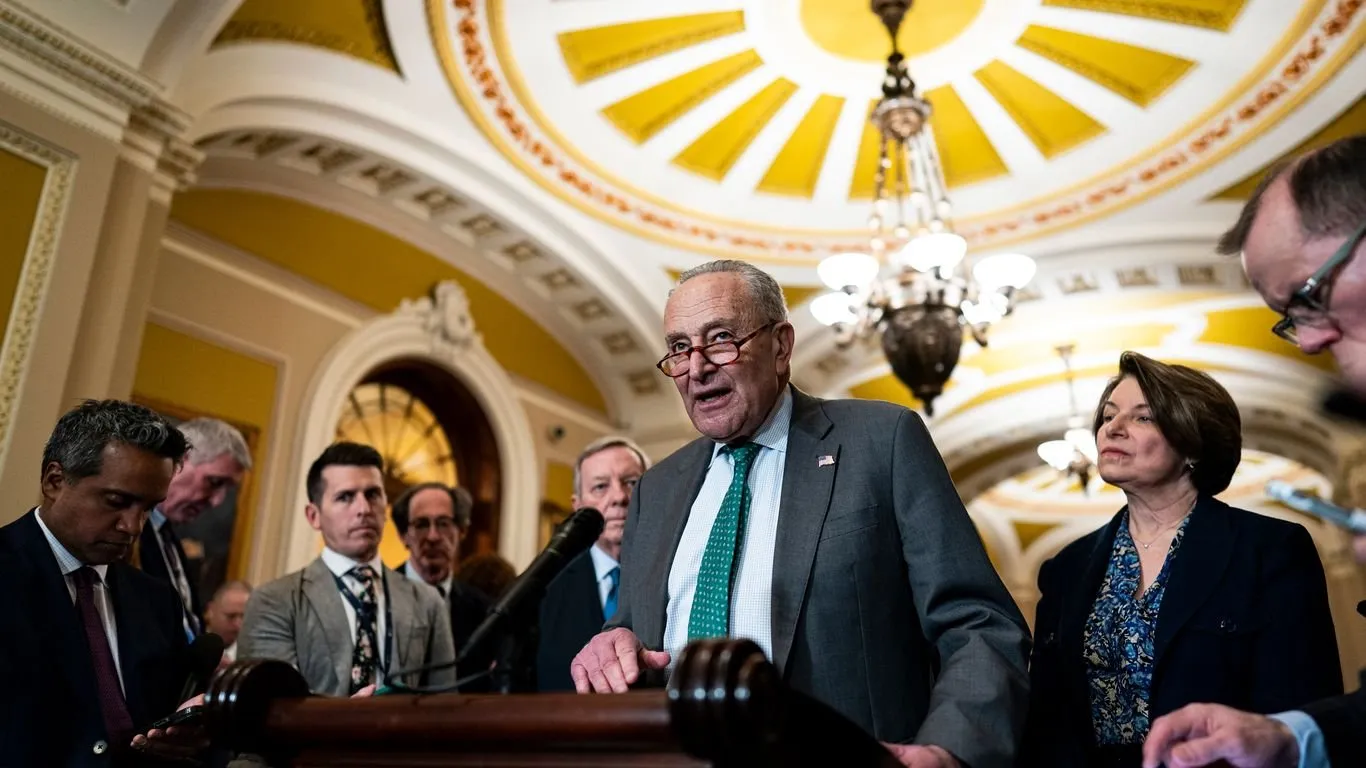Senate Democrats on the Brink: Will They Risk a Government Shutdown?
As the deadline for federal funding approaches, Senate Democrats find themselves at a critical crossroads. The party is grappling with the implications of rejecting a GOP stopgap spending bill that could lead to a government shutdown. With various factions within the Democratic Party voicing differing opinions, the stakes have never been higher.
Senate Minority Leader Chuck Schumer has made it clear that the majority of Democrats are poised to reject the House-passed funding bill. This decision comes amidst a backdrop of growing concern among party members about the potential political fallout of a government shutdown. The looming question is whether Democrats will risk being blamed for a shutdown, despite ongoing disruptions from their GOP counterparts.
The situation is further complicated by the warnings from some centrist Democrats. They argue that defeating the funding measure may not lead to a straightforward resolution. Instead, it could exacerbate the current standoff, leaving federal services and employees in limbo. As tensions rise, the internal divisions within the party become increasingly apparent.
- Who is involved? Senate Democrats, led by Chuck Schumer, and their GOP counterparts.
- What is at stake? A potential government shutdown due to the rejection of a GOP funding bill.
- When is the deadline? The funding decision must be made imminently to avoid a shutdown.
- Where does this take place? In the U.S. Senate and Congress.
- Why is this happening? The Democrats face a tough choice between fiscal responsibility and political repercussions.
- How are Democrats responding? By weighing their options and considering the implications of their decisions.
The current impasse highlights a broader division within the Democratic Party. On one side, there are progressives who are staunchly opposed to the cuts proposed in the GOP bill. On the other, centrist Democrats are advocating for a more pragmatic approach, suggesting that accepting some cuts might be necessary to avert a shutdown. This internal conflict underscores the difficult balancing act that party leaders must navigate.
Analysts are weighing in on the precarious position of Senate Democrats. Many suggest that the party has limited leverage in these negotiations. The choice before them is stark: either uphold their principles of fiscal responsibility or risk the political fallout that could ensue from a government shutdown. The implications of their decision are significant, not only for federal services but also for the party’s standing with voters.
As the deadline looms, the potential consequences of a government shutdown are becoming increasingly clear. Federal employees could face furloughs, and essential services may be disrupted. This situation raises questions about the effectiveness of Congress in managing budget negotiations and highlights the ongoing tensions between the two major parties.
In the midst of these developments, public opinion is also a critical factor. Many Americans are weary of political gridlock and may hold Democrats accountable if they are perceived as the party responsible for a shutdown. The fear of being blamed is palpable among party members, as they grapple with the ramifications of their choices.
In conclusion, Senate Democrats are at a pivotal moment in their efforts to navigate a potential government shutdown. The decision to reject the GOP funding bill could lead to significant consequences for federal services and employees, as well as for the Democrats’ political future. As they weigh their options, the party must consider not only the immediate implications of their actions but also the long-term effects on their standing with the American public. With the deadline fast approaching, the pressure is mounting, and the outcome remains uncertain.






Leave a Comment